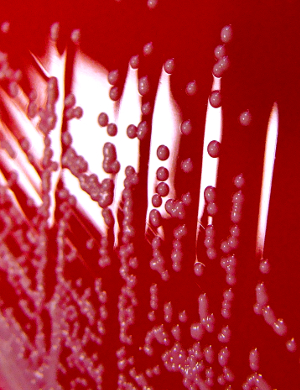Boss cells' big job expanded
 A new study has shown more aspects to the role played by megakaryocytes - giant cells that leap into action when the body is wounded.
A new study has shown more aspects to the role played by megakaryocytes - giant cells that leap into action when the body is wounded.
Megakaryocytes are best known for producing platelets that heal wounds, but these “mega” cells found in bone marrow also play a critical role in regulating stem cells, according to new research.
“Our results suggest that megakaryocytes might be used clinically to facilitate adult stem cell regeneration and to expand cultured cells for adult stem cell transplants,” says Dr Meng Zhao, a lead author on the study.
The researchers discovered that megakaryocytes directly regulate the function of adult stem cells that form blood and immune cells, called ‘hematopoietic stem cells’, which constantly renew the body’s blood supply.
But these cells can also develop into all types of blood cells, including white blood cells, red blood cells, and platelets.
Despite intense research, it is still not clear how hematopoietic stem cells actually work, and how they are regulated because of the complexity of the bone marrow microenvironment.
But now, Zhao and his colleagues have discovered that megakaryocytes can actually regulate hematopoietic stem cells by performing two previously unknown functions.
"Megakaryocytes can directly regulate the amount of hematopoietic stem cells by telling the cells when they need to keep in the quiescent stage, and when they need to start proliferating to meet increased demand," he said.
Maintaining that delicate balance is important, Zhao says.
“You don't want to have too many or too few hematopoietic stem cells.
“Our findings suggest that megakaryocytes are required for the recovery of hematopoietic stem cells post chemotherapy,” explained fellow researcher Dr Linheng Li.
The researchers say their next step will be to engineer a megakaryocyte niche (a special environment in which stem cells live and renew) that supports the growth of hematopoietic stem cells in culture.
Zhao and his colleagues are also investigating whether a megakaryocyte niche can be used to help expand human hematopoietic stem cells in vitro and stem cell transplantation for patients.








 Print
Print